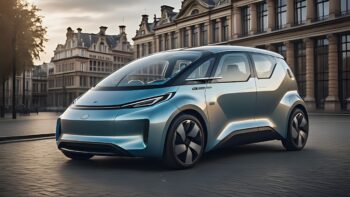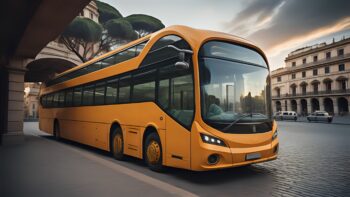
Electric Utility Vehicles
Listing Category by product
Electric utility vehicle manufacturers
Electric utility vehicle manufacturers are transforming the landscape of utility operations with their innovative offerings. Specializing in electric-powered vehicles for various tasks, such as maintenance, landscaping, and campus transport, these manufacturers prioritize efficiency, reliability, and sustainability. By leveraging advancements in battery technology and vehicle design, they cater to a diverse range of industries seeking eco-friendly and versatile solutions for their utility needs.
Overview electric utility vehicles
Electric utility vehicles are purpose-built electric vehicles designed for various utility and commercial applications. These vehicles offer an eco-friendly alternative to traditional gasoline or diesel-powered utility vehicles, with zero tailpipe emissions and reduced operational costs. Here are some key points about electric utility vehicles:
- Applications: Those vehicles are used in a wide range of industries and sectors, including agriculture, landscaping, construction, municipal services, airports, and universities. They are versatile and adaptable, with configurations available for tasks such as hauling, towing, maintenance, and personnel transport.
- Battery technology: Most electric utility vehicles are powered by lithium-ion batteries, which provide sufficient energy density for extended range and operation. Battery capacities vary depending on the vehicle’s intended use, with options available for smaller vehicles like golf carts to larger trucks and vans.
- Performance: These electric vehicles offer comparable performance to their gasoline or diesel counterparts, with instant torque delivery and smooth acceleration. They are often quieter and more comfortable to operate, providing a pleasant working environment for drivers and passengers.
- Charging infrastructure: Charging infrastructure for those vehicles typically involves standard electrical outlets or dedicated charging stations. Many vehicles offer the flexibility to charge overnight or during downtime, ensuring uninterrupted operation during work hours.
- Cost savings: While the initial purchase price of electric utility vehicles may be higher than conventional counterparts, they offer significant long-term cost savings. Electric vehicles have lower operating and maintenance costs due to fewer moving parts, reduced fuel expenses, and potential incentives such as tax credits or rebates.
- Environmental benefits: By eliminating tailpipe emissions, these electric vehicles contribute to improved air quality and reduced carbon emissions. They help organizations meet sustainability goals and comply with regulations aimed at reducing greenhouse gas emissions and promoting cleaner transportation.
- Customization: These vehicles can be customized to meet specific requirements and applications. Manufacturers offer various options for cargo beds, seating configurations, accessories, and attachments, allowing businesses to tailor vehicles to their unique needs.
Electric utility vehicles offer a viable and sustainable solution for a wide range of commercial and industrial applications. With their versatility, performance, and environmental benefits, they continue to gain popularity as organizations seek to reduce their carbon footprint and transition to cleaner transportation solutions.



















